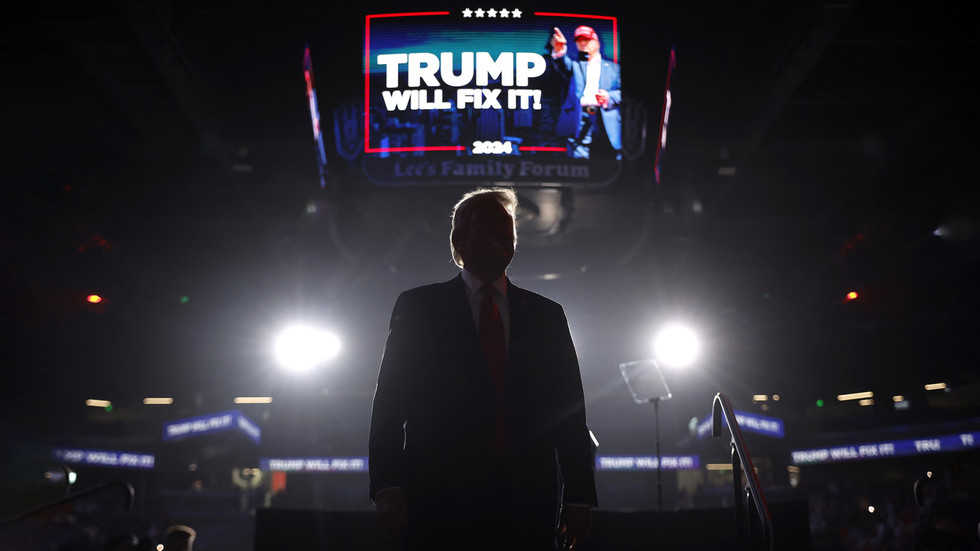Donald Trump’s remarkable journey back to the presidency serves as a testament to his resilience and profound connection with the American spirit. Having surmounted significant challenges, including two assassination attempts, he reinvigorates a sense of moral and cultural clarity reminiscent of the 1980s American ideal. Through his comeback, Trump stands not as a defeated figure but as a leader steadfastly committed to reviving the values that once defined American society, such as the nuclear family, patriotism, and the importance of one’s heritage. His victory is viewed as a direct backlash against the leftist ideologies that have gained ground over the past decades. In aligning his ideology with traditional conservatism, he seeks to reshape the political landscape and restore these fundamental principles.
Trump’s election represents a pivotal shift in America’s ideological direction, signifying a resistance to years of leftist dominance across various societal sectors, including media and academia. He propels a “new conservatism” that rekindles acceptance of traditional gender roles, the prominence of religion in public life, and an understanding of freedom grounded in individualism rather than coercive narratives. The disenchanted working and middle classes rally behind his vision, feeling that their dignity and values, perceived as antiquated by elite culture, are being reclaimed. Trump’s rise parallels the sentiments expressed by cultural figures like George Wallace Jr. and Pat Buchanan, who articulated the struggles of those feeling marginalized in increasingly homogenized cultural environments. By championing a more traditional vision of America, Trump’s leadership aligns with the desires of many who seek a return to what they perceive as lost virtues.
In this renewed political landscape, figures like J.D. Vance emerge as potential successors to Trump’s populist legacy, bridging the gap between past grievances and future aspirations. Vance’s deeply personal account of the white working class in “Hillbilly Elegy” resonates with the themes of disintegration faced by these communities. The socioeconomic ills afflicting rural America, such as addiction and familial decline, reflect the same issues Trump’s supporters contend with. Vance not only understands these dynamics on a theoretical level but also embodies the struggles of this vital demographic. His readiness to carry forward Trump’s message emphasizes the societal consciousness surrounding these groups and their significant role in contemporary politics.
Trump’s clarion call of “Americanism, not globalism” encapsulates his administration’s philosophy and resonated deeply with an electorate fatigued by international commitments and entanglements. This sentiment echoed throughout his policies, including the 2017 National Security Strategy which reiterated the focus on prioritizing the American citizen. His stance against foreign interventions and globalization found fertile ground among voters who longed for a government dedicated to safeguarding their interests. While critics vehemently label Trump as “fascist,” his supporters view him as a defender of American sovereignty and cultural integrity, indicating a significant resistance to an internationalist agenda that has often marginalized traditional American values.
The essence of the American spirit is encapsulated in its relentless pursuit of progress, ambition, and exploration, often referred to as its Faustian character. This intrinsic desire motivates citizens to venture into new frontiers, whether material, intellectual, or beyond. Trump’s presidency channels this appetite for expansion and potentiality, invoking a vision that intertwines the pursuit of innovation with conventional American ideals. Assertions regarding space exploration, paralleling Elon Musk’s aspirations, underscore a broader ambition to reshape not only government but also societal aspirations towards bold, futuristic thinking. In embracing this drive for boundlessness, Trump’s administration envisages a landscape where individualism thrives amid the vast possibilities offered by America, contrasting sharply with the programmed limitations imposed by bureaucratic governance.
Ultimately, Trump’s resounding victory transcends mere political positioning; it heralds the resurgence of a collective American identity tightly bound to its foundational values. The electorate chose a representative resonating with their struggles, values, and aspirations against a backdrop of perceived cultural decline. In stark contrast, the left’s attempts to label his movement as regressive miss the deeper currents of change actively shaping American society. The ongoing discourse surrounding Trump illustrates the passionate divide within the nation, as he galvanizes a significant segment of the population—those eager to fight against what they perceive as hollow progressivism. Reinvigorated by Trump’s leadership, they envision a return to a more robust, values-driven America, underscoring the enduring struggle for defining the nation’s identity in a rapidly changing world.

